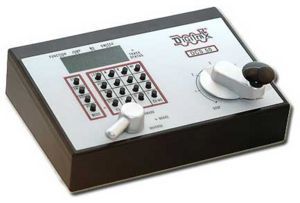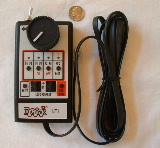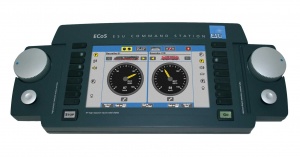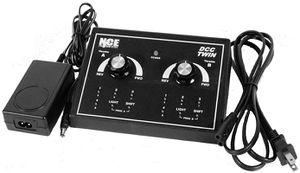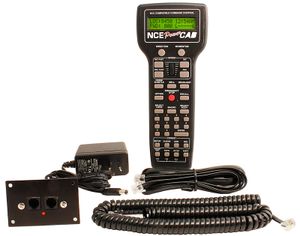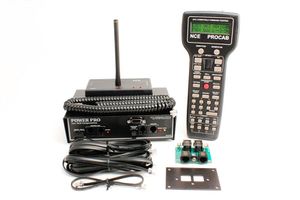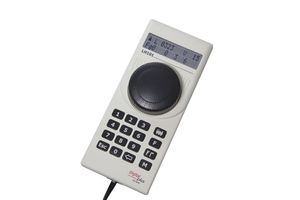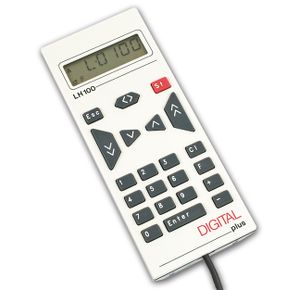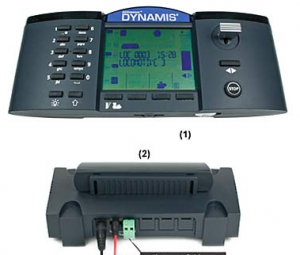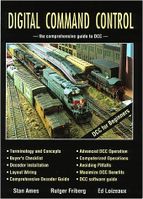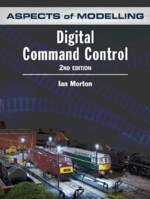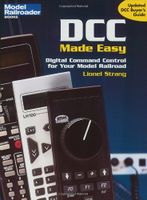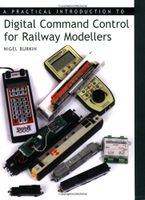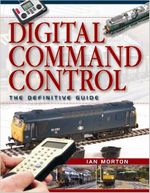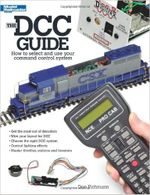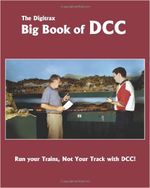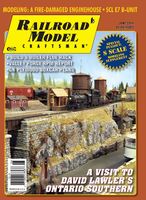Selecting A Digital Command Control System
Summary: Selecting a Digital Command Control system can be perhaps the most complicated aspect of getting started in DCC. Hopefully, this article will get you set in the right direction on finding the best system for you.
|
See the Video. |
A Digital Command Control system is a large investment, in both time and hardware. Careful consideration means only making the initial investment once, with upgrades allowing you to leverage that investment. Choosing by brand and/or price may result the discovery later that the feature set is lacking, and the only solution is to scrap your initial investment and purchase another brand of DCC system.
Also read the companion article. Choosing a DCC System for more pointers and things to consider.
Which Brand of Digital Command Control System is The Best?
This is perhaps the single most asked question by people just getting into Digital Command Control.
The short answer: It depends!
If you ask ten people what the best DCC brand is, you'll get at least 14 different answers – Some say NCE systems are the best, others argue that Digitrax is, while a third will say Lenz. :-) Also, it's all too easy to pop into a DCC forum and ask this question. Keep in mind, no one person can know everything about every system. Every manufacturer will have packages ranging from basic to complex as well.
"Best" is relative. Start off reading manuals online, comparing specs, and trying out systems in person. Check out a local layout (personal or clubs) if you can find one. See what they run with, and operate a train under Digital Command Control.
Best for you is different than what is best for me. For instance, in a garden railway, the engineer will need more current (bigger trains – more power). Digitrax's 8 amp sets fit the bill because of its initial power output capabilities. Keep in mind, you can add additional power (boosters) to any DCC layout later.[1] However, others like NCE throttles since they feel they may be easier to use.
In the end, this Wiki cannot answer this question for you, however, the DCCWiki is here to give you enough information to make an informed decision regarding the right Digital Command Control system for you.
Where Do I Start?
Before you rush out to buy a Digital Command Control system, spend your time wisely. The best course of action is to spend six months reading about Digital Command Control. There are a number of books about DCC available at your local hobby shop or favourite bookseller. Read the model railroad oriented magazines and websites.
Doing your research gives you a better vision of what DCC can and cannot do, the capabilities and possibilities, and which brands have on offer features you may want. Not just the DCC system, but multifunction decoders, stationary decoders, signalling systems, block detection and other features. Some systems are more flexible, where others offer features like RailCom or other automation related accessories.
Even research decoders: Not all multifunction decoders are the same. Some offer only a few features, whereas others have a multitude of features such as multiple lighting effects. Some offer sound, others support automation. If you are interested in decoders with a lot of features, you need throttles that give access to them.
Considerations
In North America, Digitrax has the largest penetration, with NCE being number two in installed DCC systems. European brands may not have a lot of support in North America. (This is by no means a method to determine which brand is better.) European brands often are leaders in new technology, like wireless throttles, Graphical User Interfaces, and automation technologies such as Asymmetric DCC.
What do other modellers in your area use?
- If you are part of an operating group, which is the dominant DCC system? Having your system compatible with others in the group allows "bring your own throttle" operating sessions.
Does your local Hobby Shop carry the brand you want? What are the local support options?
Online Support: Are there mailing lists you can join for support from the larger community? There are brand specific ones, and in North America Digitrax again leads with more than double the subscribers compared to NCE mailing lists, with Lenz following. Other brands may have little to no presence on mailing lists. Mailing lists usually are member oriented with no support or affiliation with the manufacturer. But they do offer excellent support from fellow users.
Don't Go by the Specs Alone!
We cannot stress this enough. Don't simply go down a comparison list of systems to select the "biggest" or "feature full" list. Doing so can lead to disaster. For instance, some systems claim they can handle 250 trains at the same time, but only 64 throttles. This essentially means that only 64 trains can run at once since most engineers can only operate one train at a time.
Or, perhaps you select the "biggest" system, however you cannot figure it out, or can't stand the throttle layout.
Follow the suggestions below to help you select the right Digital Command Control system for you!
Factors to Consider when Evaluating DCC Systems
- How much power do you require?
- Estimate 500mA per locomotive
- Allows for 10 locomotives powered by one 5A booster
- Ten Amp boosters are not meant for H0 Scale locomotives
- They can supply enough power to melt Code 70 rail
- The locomotive's internal wiring can be destroyed by a short
How Many Operators?
- With Digital Command Control, you will probably have, or want more operators on your layout.
- If the system is easy to use, you will probably get more of your fellow modellers interested in operation sessions on your layout
- By choosing a system which many use in your area, you can ask operators to bring a throttle to an operating session
- In the end, you will have more trains on the move.
What Type of Throttles Will I Need?
- For operating sessions, a simple throttle will suffice
- Prevents operators from altering programming accidentally
- Fully Featured Throttles: More options, and necessary for programming and access to decoder functions.
- Hostlers will need to be able to create consists, move power, and dispatch locomotives as required
- Wireless Throttles
- These can be expensive to buy in the first case, and more expensive as an upgrade.
- They are often full feature throttles
- Can additional throttles be added easily using smartphone apps?
Cost
Since this is a big investment, and changing systems will be costly as well, consider what expanding the system will cost by adding in any additional items you may need, such as power management, boosters, stationary decoders, additional control panels, etc. At the very minimum, price a system with several additional throttles.
Avoid shopping on cost alone, as the low end DCC systems may be very limited. It may only allow a maximum of ten locomotives, limited function buttons, and little to no expandability. The power available may limit you to a few locomotives. Some fall into this trap and learn later that upgrading will not be easy, if even possible, and costly. Often the only option is to replace the command station, boosters, and throttles with an entirely new system from another supplier.
This avoids a situation later when you need to expand your DCC system and discover that adding a booster or additional throttles will cost a lot more than you realised. What may appear to be a simple upgrade could involve something costly, like a new command station. Also look at the future cost of upgrading to a wireless system.
Try It
First things first, find some layouts around you that use various Digital Command Control systems and brands. Check out the layout of the throttles. After you "interview" them, be sure to write some notes so that you can refresh your memory between visiting systems and when you've test driven them all you can remember which was which.
One important factor: How easy is it to use the throttle with no instruction, just by looking at it? Can you use it with only a minute of instruction?
Points to consider:
- Was the throttle easy to use?
- Does the throttle use a potentiometer, rotary encoder, or switches to control the speed
- Did you like the throttle layout?
- How long did it take you to learn to operate trains?
- Control multiple trains at once?
- Same throttle & different throttles.
- Did the owner explain how easy/hard it is to program decoders?
- Were you able to throw turnouts?
- Are the system components easy/hard to wire?
- How upgradeable is the system?
- Can you connect a computer to the system? How difficult is that?
If you cannot find layouts around you, review pictures of throttles and try to get an idea of its operation by reading the manual. Browse any online manuals you can find for various systems to get an idea of a DCC system's wiring needs. Keep in mind, if a system offers a component that requires complex wiring, it's usually not necessary to use that component in your setup.
List Your Requirements
After you've taken various systems for a test drive, develop a list of requirements.
Read this article for more pointers and things to consider.
But, Which One Really is the Best?
Okay, so you don't want to do the research to find the best system? We'll tell you: Just kidding! You have to read, and do some research. Not only will you need to figure out what is the best system for you, you'll need to eventually read how to use and program your DCC system. Don't get stressed as most manufacturers have support forums, or groups where you can ask questions that you just can't figure out.
If you read any of the Digital Command Control forums around the net, you 'll see this question asked everywhere. The simple answer always is "it depends". Depends on what you think is best, not what someone else thinks is best.
Do Your Research!
Thanks to the internet, there is a wealth of information at your fingertips. Make use of the resource! Download the manuals for any system you are considering and read through them. Investigate the manufacturer's web pages for information. Some manufacturers are pretty stingy with information online, whereas others are very liberal with how much information they willingly provide.
See the DCC Resources page for books, magazines, and other sources of information
- Books and Magazines
See Also
- DCC Starter Systems Comparison - Compare features between various systems. As mentioned above, some manufacturers are not very forthcoming with information, so the listing is the best possible under the circumstances.
DCC System Comparison: Digtrax – NCE
- ↑ Planning is required to add additional boosters. See Power District for more information.
